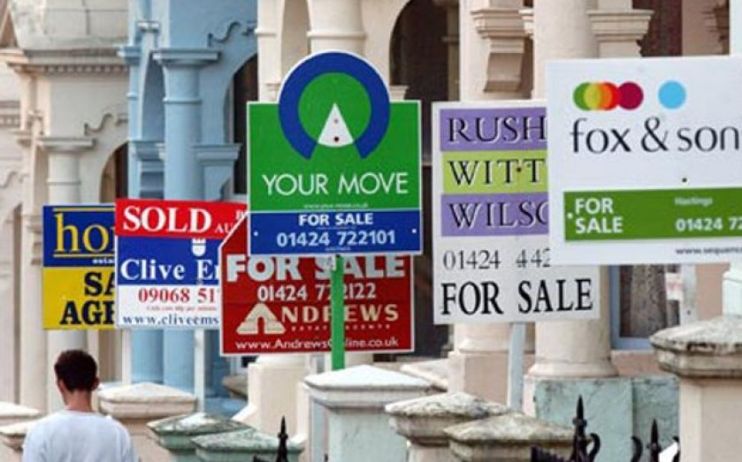UK house prices: Growth falls to four-month low in June

UK house prices remained “subdued” in June, new figures showed today as the cost of buying continued to fall in London and the south east.
The price of a UK home grew 0.5 per cent year-on-year over the month, lower than May’s 0.6 per cent growth.
The rate was the worst since February’s 0.4 per cent growth, according to Nationwide’s house price index.
Read more: Housebuilders boosted by Boris Johnson no-deal Brexit budget
However, UK house prices edged upwards 0.1 per cent month-on-month in June compared to a 0.2 per cent drop in May.
The average price of a UK home rose from £214,946 to £216,515 between May and June.
“New buyer enquiries and consumer confidence have remained subdued in recent months,” said Robert Gardner, the chief economist at Nationwide.
“Nevertheless, indicators of housing market activity, such as the number of mortgages approved for house purchase, have remained broadly stable.”
The news was particularly bad for London house prices.
This quarter, prices in the capital have fallen 0.7 per cent to an average of £465,722.
South east house prices fared even worse, falling 1.6 per cent to £277,227.
Brexit continues to challenge UK house prices
“The housing market is still finding life challenging,” said Howard Archer, economic adviser to the EY Item Club.
“Buyer caution amid still relatively challenging conditions is being reinforced by Brexit, political and economic uncertainties.”
Marc von Grundherr, the director of estate agent Benham and Reeves, said that the property market in London and the south east may take longer to recover from the uncertainty.
However, he added, UK house prices’ long-term health “is very positive indeed” if the country can begin to recover without “crashing to the ground”.
Read more: Reforms to planning and Help-to-Buy unveiled by government
With the 31 October Brexit deadline approaching, buyers are coming off a buying spree in April and May after the original March deadline passed, said Andrew Montlake, director of mortgage broker Coreco.
“It’s hard to see the market breaking out of its current flatline during the summer months but conditions could change rapidly as we approach the 31 October deadline,” he said.
London house prices drag down UK market
Cain McKinnon, senior investment analyst at alternative finance platform Cogress, pointed out that London’s ailing housing market is still only five per cent below 2017’s all-time highs.
“[London] is most likely stable. The more important indicator is activity in the market, which has remained subdued,” he added.
Jonathan Hopper, managing director of Garrington Property Finders, compared London’s housing market to a supernova.
“After years of burning with stellar brightness, its slowdown is now exerting a gravitational force on the national average,” he said.
“That gravity has even turned the south east’s markets inside out. The outer London boroughs and the commuter belt [are] now suffering the sharpest price falls while central London values settle.”
Could the Brexit delay help UK house prices?
Economists warned that the longer delay to Brexit will not help the UK housing market’s prospects.
Instead the delay could leave buyers more cautious, especially if wage growth and the employment rate slip.
“Prolonged uncertainty will weigh down on the economy and hamper the housing market,” Archer said.
“It looks questionable whether the labour market and earnings growth will sustain their recent strength as companies tailor their behaviour to a lacklustre domestic economy,” he added.
McKinnon said he believes the UK housing market can withstand the current Brexit uncertainty casting a shadow over activity.
“Overall the market is … proving relatively resilient to a drawn-out period of negative sentiment and subdued activity,” he said.
“A continued search for value, and lower barriers to entry, will favour the regions as the market recovers from the ‘hold and wait’ period.”
Read more: Experts warn of ‘volatile’ UK house price growth
Iain McKenzie, chief executive of The Guild of Property Professionals, said Brexit should not deter buyers outside London and the south east.
“The effects have not been as widely felt in the North, Midlands and West Country, where house prices in many parts continued to rise throughout 2018,” he said.